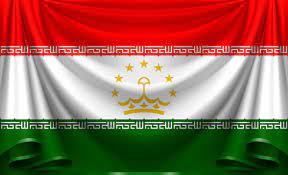UN expert urged Tajikistan to adapt practices on freedom of religion or belief
During her visit, the Special Rapporteur held meetings with Government authorities in Dushanbe and travelled to Khorog in the Gorno-Badakhshan Autonomous Oblast (province).

The UN Special Rapporteur on freedom of religion or belief, Nazila Ghanea, today urged Tajikistan to adapt and reshape its laws, policies and practices on freedom of religion or belief, saying this would help contribute to development, peace and understanding in the country.
“The shadow of the civil war looms very large over current laws and practices relating to freedom of religion or belief, and deals a heavy blow to it,” Ghanea said in a statement at the end of a 10-day visit to the country. She noted that the scope for the exercise of freedom of religion or belief falls alarmingly short of the guarantees of international human rights law to which Tajikistan is bound.
“Respect for freedom of religion or belief should be visible also in public manifestation and should apply to everyone, including women, religious and belief minorities, and children and young people. They should be allowed to enjoy this freedom together with others,” the UN expert said.
She recalled that freedom of religion or belief was linked to the need to allow for worship, observance, practice, and teaching, including in the public expression of traditions and culture. “It is inseparable from freedom of expression and association and allows independent associations and other civil society actors to contribute to an open civic space and the development of society,” she said.
During her visit, the Special Rapporteur held meetings with Government authorities in Dushanbe and travelled to Khorog in the Gorno-Badakhshan Autonomous Oblast (province). She met with the Ombudsman, members of Parliament, prosecutors, the Supreme Court, civil society organisations, representatives of religious or belief communities and representatives of the international community. She also visited a prison where political and religious prisoners were being held.
“I urge the authorities to look beyond their singular concern with extremism, terrorism and incitement, and to open their imaginations to the positive contributions of religion or belief to a harmonious and rich public life,” Ghanea said. “Religion or belief alone do not constitute serious risk factors for social life; they can actively contribute to development, peace and understanding,” she said.
The expert will present a full report on her visit to the Human Rights Council in Geneva in March 2024.
- READ MORE ON:
- Tajikistan
- Nazila Ghanea
- freedom of religion










